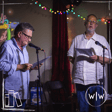
133 Tia Fisher | YA Verse Novelist
Young adult verse novelist, Tia Fisher is on the podcast talking about verse novels, writing for teens, rejections and the whole publishing rollercoaster. She also shares a little bit about the origin of her debut novel 'Crossing the Line' and the real life events that inspired it.
Support the show on Patreon, chat with Jamie and other guests on the Discord server and get all of the episodes ad free.
Get a whole month with WriteMentor's Hub for free using the coupon code 'Write&Wrong'.
The Chosen Ones and Other Tropes
Jamie, Melissa and Noami talk about the best and the worst writing tropes!
Click here to find all of our guests' books as well as the desert island library over at bookshop.org.
Click on this referral link to get 30% off your first three months with Zencastr.



















